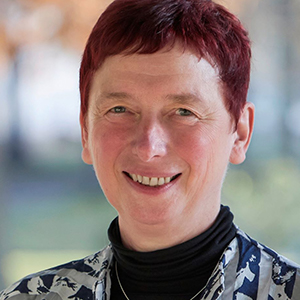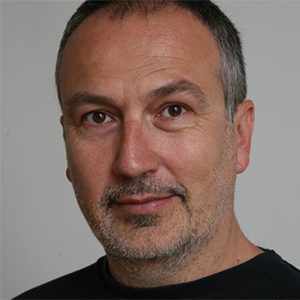Feb. 24–26, 2021 | Virtual
Proteinases and their inhibitors
38th Winter School on proteinases and their inhibitors
Feb. 24–26, 2021
The Winter School provides a forum primarily to young scientists (pre- or post-doc) allowing them to present their exciting and/or intriguing results for discussion with leading experts. Due to the COVID-19 pandemic, this year's program will be offered virtually, hosted by the ASBMB.
Founded by Hans Fritz and Vito Turk more than three decades ago, the Winter School has been providing a scientifically stimulating and outstanding open atmosphere to researchers on proteolytic enzymes. We are excited to be holding this valuable program virtually, making it accessible to scientists around the world.
The meeting covers diverse and vibrant fields of protease research, such as mechanistic studies on proteases in their molecular, cellular and organismic context. Sessions include SARS-CoV-2, Bloody Matrix, Find your Balance & Homeostasis, Neurodegeneration & Cancer I, Cancer II, and Virus & Methods. Early career and established scientists will benefit from attending this event.
The Henner-Graeff Foundation will support this year’s Winter School by sponsoring three Young Investigator Awards with €750 each. The YIAs will recognize the best poster presentation of the Wednesday session and Thursday session as well as the best plenary talk. The participants of the meeting will select the YIA candidates by an online voting system, from which the YIA’s will be identified by the famous Winter School Committee.
The online sessions will take place between 9 a.m. – 3:30 p.m. EST | 3–9:30 p.m. CET each day.
Important dates
| Feb. 22, 2021 | Regular registration deadline |
|---|
Organizers
Registration
Registered participants will receive a link to access the virtual platform three days prior to the event date.
Not a member? Join the ASBMB and save!
| Registration type | Early registration (on/before Feb. 1) |
Full-price registration (Feb. 2–22) |
||
|---|---|---|---|---|
| Members | Nonmembers | Members | Nonmembers | |
| Regular | $100 | $125 | $125 | $150 |
| Industry | $100 | $125 | $125 | $150 |
| Early career | $50 | $75 | $75 | $100 |
| Graduate/Undergraduate student | $25 | $50 | $50 | $75 |
| Affiliate | $25 | $50 | $50 | $75 |
Program schedule
Wednesday agenda
SARS-CoV-2
Discussion and break
Bloody matrix
Break
Poster discussion session
Social hour: Good morning Asia and Australia
Thursday agenda
Find your balance & Homeostasis
Discussion and break
Neurodegeneration & Cancer I
Break
Poster discussion session
Social hour: Good morning Asia and Australia
Career-development session
Friday agenda
Cancer II
Discussion and break
Virus & Methods
Break
Award ceremony
Sign up for email updates
Enter your email address below to receive updates about the 38th Winter School on proteinases and their inhibitors.





